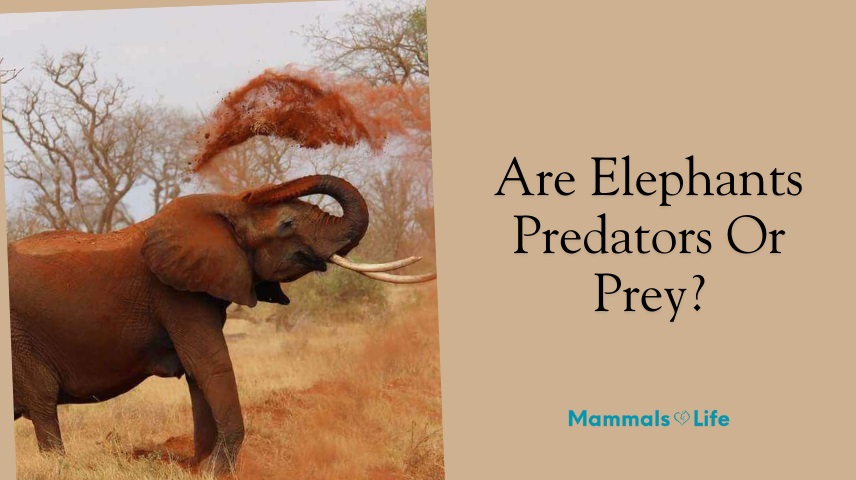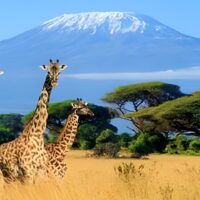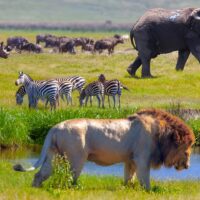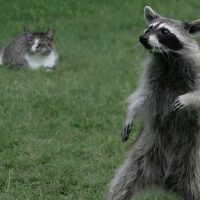Elephants hold a unique place in the natural world. Their size alone sparks curiosity about their role in the food chain.
Elephants are the giants of the land, majestic creatures that roam the vast landscapes of Africa and Asia. Their sheer size and intelligence have long fascinated humans, but what is their place in the ecosystem? Are they hunters, or are they the hunted?
Understanding the dynamics of elephant life is crucial to appreciating these magnificent animals. Despite their strength and size, elephants face threats from both nature and humans. They are not predators in the traditional sense; they are herbivores, consuming a diet rich in vegetation. Yet, they are not entirely free from danger. Predators such as lions and hyenas may prey on young or vulnerable individuals. Human activities, including poaching and habitat destruction, have also placed them in a position of prey. This introduction sets the stage for a deeper exploration into the complex existence of elephants, shedding light on their interactions with other species and the challenges they face in the wild. Join us as we delve into the fascinating life of these gentle giants and answer the question: Are elephants predators or prey?

Credit: www.elephant-world.com
Elephants In The Ecosystem
Elephants play a big part in their homes. They live in forests and savannas. Elephants shape the land around them. They knock down trees. This creates space for new plants.
These big animals eat a lot of plants. They help spread seeds too. This is good for the environment. Elephants dig for water. This helps other animals as well.
Elephants meet many other creatures. They are not predators. But, they are not easy prey. Their size keeps them safe. Still, baby elephants must watch out. Lions and hyenas can be a threat to them.
The Diet Of Elephants
Elephants eat plants, not other animals. They are not predators. These huge animals love to munch on grass, leaves, and fruit. Their diet helps forests grow and spread. Elephants help plant new trees by spreading seeds.
But, their eating can also cause problems. They can clear lots of plants very fast. This can lead to less food for other animals. It can change the whole forest.
Elephants shape the land around them. They create paths and clearings in the wild. This changes the homes of many creatures.
Threats To Elephant Survival
Elephants face many dangers. Human activities hurt their chances to live. People cut down forests where they live. They also hunt elephants for their tusks. This makes it hard for elephants to find food and water.
Natural predators are not a big problem for adult elephants. But, baby elephants can be in danger. Lions and hyenas might attack them. Still, the biggest threat comes from humans, not animals.

Credit: www.youtube.com
Conservation Efforts
Elephants need large, safe spaces to live. Protecting habitats is key to their survival. Lands are set aside for them. This helps keep their homes from harm. Trees and water sources are kept safe too. This makes sure elephants have what they need.
Anti-poaching measures stop illegal hunting. Guards are trained and given tools. They watch over the elephants. Laws are made stronger to scare off hunters. Technology like cameras and drones help too. These keep a close eye on the lands.

Credit: www.earthtouchnews.com
Conclusion
Elephants hold a unique place in the animal kingdom. They are not predators, but powerful giants that mostly live peacefully. Yet, in the wild, they can become prey, especially young or weak ones. Understanding their role helps us protect these magnificent creatures.
Elephants need our help to stay safe and thrive. By learning about their lives, we join the effort to conserve them. Let’s keep these gentle giants roaming our Earth. Remember, their survival is in our hands. Let’s act now to ensure their future.








